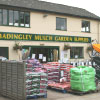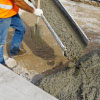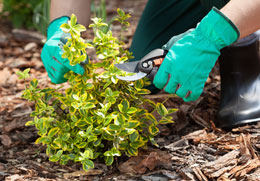How Madingley Mulch Can Help Improve Your Clay Soil
Keen gardeners know how much type of soil can vary greatly between regions, and this in turn affects how easy it is to cultivate certain plants. One of the biggest problems gardeners in the East of England face is the clay soil – it’s a sticky substance which means that it can be difficult to grow many different types of fruit, vegetables, and flowers.
Here Madingley Mulch, who supply bark chippings in Essex, Cambridgeshire and across the East of England, explain why it’s a problem and the various steps you can take to mitigate its effects.
Clay Soil Characteristics…
Although there are other soil types in the East of England clay is by far the commonest. You will know if you have a clay soil in your garden or allotment if it feels slightly sticky or dense between your fingers. You can also roll it into a ball, or a sausage shape, and it won’t crack or break up.
The key characteristics of clay soil is that it holds water well and is usually rich in plant nutrients. Although it can be a problem for some, some species of plants (such as roses and other climbers, and some trees and shrubs) thrive in this type of soil.
…and Problems
However, on the flip side, clay soil is usually heavy to dig and cultivate, and it drains slowly after rain. It also warms up slowly as summer approaches, leading to delayed plant growth and ‘workability’. If you walk on the soil, or work with it when it’s wet, you’ll do a lot of damage to its structure (and probably create a lot of puddles which will take a long time to drain away).
Annuals, bedding plants, and some types of soft fruits (raspberries and strawberries, for instance) are best avoided unless you take steps to improve the soil.
What Can You Do About It?
The Royal Horticultural Society has outlined a series of steps which you can take if you have clay soil in your garden;
- Don’t dig into it or walk on it until autumn or early winter – then leave it until at least mid-spring because the chances are it will be too wet.
- Avoid planting too early (unless you have a raised bed – as this will improve drainage, and you won’t be walking on it).
- And finally, use plenty of organic matter, such as manure or composted bark, as this will improve the working properties of the clay soil.
Specifically, when it comes to some trees, shrubs, and other permanent plants, use plenty of organic mulch around the base (although not actually touching the plant itself).
Bark Chippings in Essex from Madingley Mulch
This last area is where Madingley Mulch are specialists. We supply a wide range of mulches, barks, composts and soil conditioners from our Cambridge base which will help you improve your growing conditions – particularly if you fancy growing bedding plants and annuals.
Among these are our range of barks – these can be used as mulches and flower bed coverings, as well as for play areas and for paths if you haven’t got time to lay paving slabs. We also supply two exclusive products, Denise’s Delight, ideal for use in raised beds, and Tony’s Tonic, great for growing roses and for use as a winter mulch.
If you would like to know more, you can call us on 01954 212144. You can either collect your order from us, or have it delivered – we operate a sliding scale of charges depending on how close to you are to us. Click here for more details.
Back to blog




